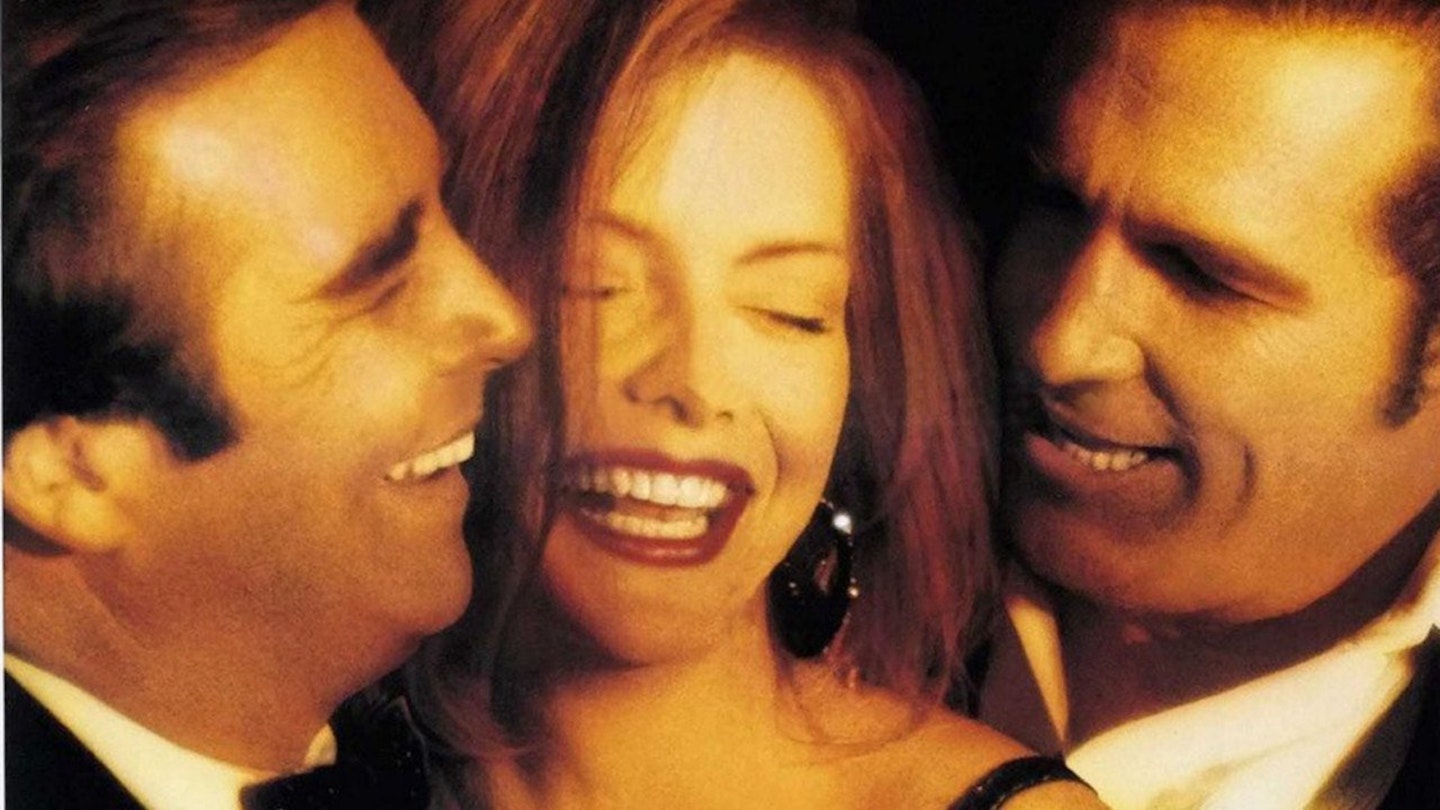The pedigree of Steven Kloves silken drama can be found among the smoky dives, the drafty aftermaths of weddings and club shows of the Baker Boys act; the film is infected with faded hope, of lives turned to the faltering patter of the ordinary. These guys, not without talent, are resting at the moment their dream finally dies. And in walks Michelle Pfieffer. If there’s anything sure to give a guy a jolt it’s that, and Kloves knows it.
The sequence of auditions, as the irritable brothers yawn and pout over the procession of no-marks, is the perfect prelude. When Susie bursts in an hour and a half late, she is so forthright they virtually sit up and beg. When she sings, with a husky, dirty, spellbinding voice (entirely Pfeiffer’s own) they, and us, are love struck.
The film, with its cool, jazzy ballads played outright, flirts with the tempo of a musical, but is too sultry for that. It moves to the slovenly, lovely drift of Susie’s body, the spell she weaves on this cranky double-act. Her immaculate version of Makin Whoopee sprawled alluringly across Jack’s piano top is a classic moment, and that they break out in a rash of desire was as inevitable as nightfall.
This, however, is only the touch paper for the real explosion in the film, the simmering rivalry between the brothers, the unspoken needle that Jack is a whole lot more talented that Frank (and echoed by the relative success of the fabulous Bridges boys) that must out. Their performances, perhaps more than Pfieffer’s swooning (she has the showy part), humming with petty prejudice and deep dependence, are the soul of the movie. It is a love story, but one about realising what you have, not what you’ve lost or gained.
